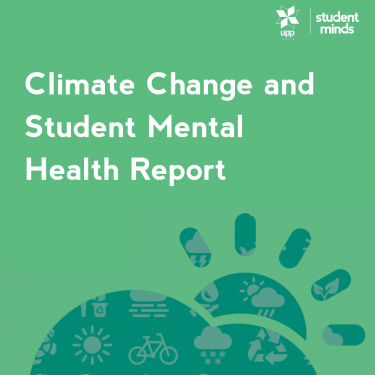This is an edited version of Professor Boyle’s essay on student employability in Laying the Foundations, first published in June 2016.
According to the government’s recent higher education green paper, employers are reporting strong demand for graduate talent. Concerns, however, have been raised about the skills and job readiness of too many in the graduate labour pool. It should be noted that this concern among policymakers is not new.
The 1963 Robbins Report highlighted the ‘instruction in skills suitable to play a part in the general division of labour’ and recognised the dependence of a ‘competitive position on skills demanding special training’. More than 30 years later, in 1997 the Dearing Report was more direct, making explicit the importance of education for employability, and the value of key skills development and work experience in developing students’ potential for employment.
However, a combination of unfavourable factors over the last eight years has made graduates’ employability a headline issue. A turbulent world economy heralded by the 2008 crash, rising tuition fees, greater competition for both home and international students, and research from employer bodies that question the ‘efficacy’ of higher education have all contributed to this renewed scrutiny. Therefore, it is no surprise that students and their sponsors (parents, employers or government) are demanding a university experience that will prepare them for an increasingly competitive, dynamic and globalised world.
To help students ‘make well-informed choices’, and ‘provide degrees with lasting value to their recipients’, one proposed solution is to introduce the Teaching Excellence Framework (TEF). This assessment of university teaching will likely include a mix of metrics, one of which may be graduate employment outcomes.
Whether one agrees with the inclusion of employment in the TEF (and one could argue that the Key Information Set coupled with university league tables already provides this information to students), an important question is if this will help universities support student employability. And, crucially, whether this will drive change that actually benefits those entering and leaving higher education? To truly realise the government’s aspirations, there are several important points that should be considered in order to support and drive positive change
The first is the responsibility key stakeholders – employers, policymakers and students themselves – have toward supporting this agenda. The relationships between employers and students must be at the heart of delivering improvements in students’ labour market skills and subsequent employability.
For example, work experience is critical for developing students’ employability. All universities want to be able to offer their students quality opportunities to gain experience in the workplace and are developing partnerships with employers to achieve this. However, the demand for experience far outweighs the supply and universities have little – at least financially – to help employers address this. Policymakers could help, but opportunities to acknowledge or support students’ need for work experience have been missed. For example, while important to the economy, was it right to introduce the Apprenticeship Levy, focussing solely on apprenticeships? Couldn’t employers have used part of this levy to fund imaginative and focused placements and internships? Initiatives such as these, co-funded by employers, might have a lasting impact on students’ employment outcomes. Incorporating these types of experiences into the levy would also have been a great signal from government to employers that ministers recognise the importance these types of experience play in the economy.
While Advanced Apprenticeships offer universities some benefit, of the 13 areas announced there are notable gaps for students interested in arts, humanities and social sciences, and employers that operate in these areas. The way employers’ needs are presented to universities also affects the skills debate more broadly. Instead of encouraging a more dynamic relationship between employers and universities, we are inadvertently encouraging the wrong mind-set, with the World Economic Forum recognising that firms require a new mind-set to meet their talent needs and to optimize social outcomes.
This raises the question of whether many employers, despite their concerns, are failing to see the potential benefits that early investment in the student experience might provide.
A second point to consider in order to support and drive positive change is the importance of emphasising ‘employability’ rather than ‘students’ employment’. Johnny Rich identifies three components – knowledge, social capital and skills – which offer a more nuanced approach than focusing solely on the general term employability, and these are what many universities are considering, through imaginative curriculum responses and broader conceptualisations of the student experience. At the University of Leicester we are delivering one of the most flexible curriculums available through ‘pathways’, which allow for traditional, primarily single discipline degrees, but also offer truly inter-disciplinary experiences for those who want to blend insights from different disciplines. Our research suggests that this more flexible training is in demand from both students and employers.
It will be interesting to see how the TEF will help us measure how well universities have prepared students for jobs of the future – a challenging prospect, given the difficulty of measuring teaching excellence in general.
Improving social mobility is a third means of bettering graduate employability, as the green paper recognises.
Reports from the Higher Education Funding Council for England and the Social Mobility and Child Poverty Commission have highlighted that students from areas of high disadvantage are less successful in obtaining professional employment than those from more advantaged backgrounds. More alarmingly, lower professional employment rates among disadvantaged students persist across their early careers. This raises the tricky problem of separating the respective influence of university experience and social background on employability. Of course, despite the political focus on access to the most selective institutions, these universities do not necessarily deliver the best professional graduate outcomes for less advantaged students. A challenge for the TEF deliberations is how to incorporate some kind of contextual value-added measure that helps benchmark an institution’s influence over employability, not just against other institutions, but against other forms or learning, such as apprenticeships.
Whether the TEF will genuinely help students remains to be seen. It is perhaps telling that a recent survey found that only 18% of applicants accessed information through Unistats, the system that currently compares official course data from universities and colleges. The TEF has re-opened debate about student employability and higher education, and what this means as we embark on a fourth industrial revolution.
In the end, though, much of this debate will centre on partnership – with employers, students, other universities and policymakers. These partnerships must have the capacity not only to drive innovation, but to deliver what students deserve: ‘a lifetime of career success’.








